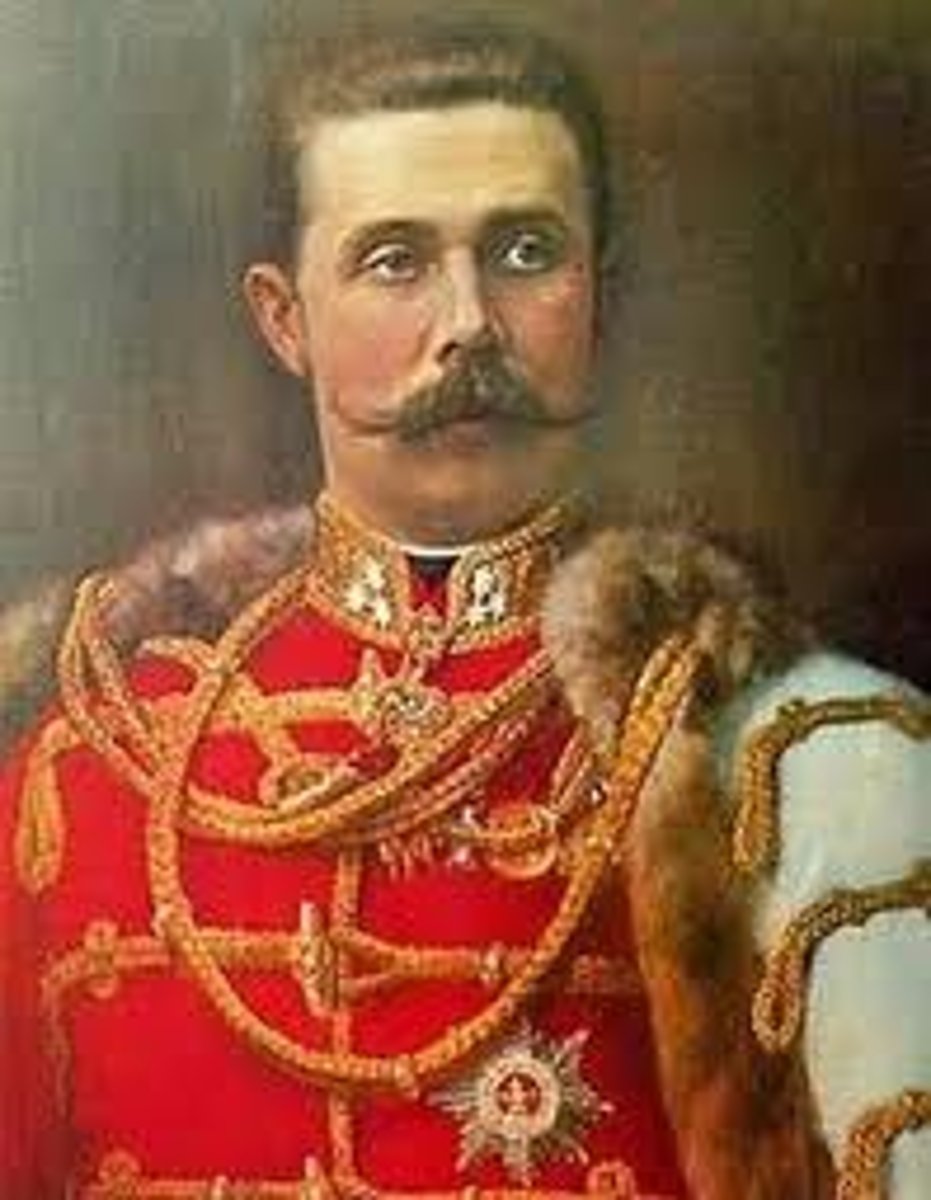World War 1 and World War 2
1/27
There's no tags or description
Looks like no tags are added yet.
Name | Mastery | Learn | Test | Matching | Spaced |
|---|
No study sessions yet.
28 Terms
Franz Ferdinand
Archduke of Austria Hungary who was assassinated at Sarajevo by a Serbian terrorist group called the Black Hand; his death was a main cause for World War I.

Nationalism
A strong feeling of pride in and devotion to one's country

Alliances
agreements between nations to aid and protect one another
Militarism
A policy of glorifying military power and keeping a standing army always prepared for war
Trench Warfare
A form of warfare in which opposing armies fight each other from trenches dug in the battlefield.
Red Baron
Manfred von Richthofen had 80 kills and one of the most famous aces. German ace.
Bolshevik (Communists)
Red army
Schlieffen Plan
A strategy drawn up by Germany to avoid fighting a war on two fronts
Treaty of Versailles
the treaty imposed on Germany by the Allied powers in 1920 after the end of World War I which demanded exorbitant reparations from the Germans
Ataturk
"Father of the Turks" who helped to create Republic of Turkey and wanted to modernize [westernize] Turkey as well as separate religion and government
Lend Lease
allowed sales or loans of war materials to any country whose defense the president deems vital to the defense of the U.S
Blitzkrieg
"Lighting war", typed of fast-moving warfare used by German forces against Poland in civil war 1939
The Final Solution
Nazi Germany's plan and execution of its systematic genocide against European jews during World War II.
Pearl Harbor
United States military base on Hawaii that was bombed by Japan, bringing the United States into World War II. Pearl Harbor was attacked on December 7, 1941.
The League of Nations
Formed after World War I as a place where countries could meet to work out their differences without war.
Vladimir Lenin
Leader of the Bolshevik Party. He lived in exile in Switzerland until 1917, then returned to Russia to lead the Bolsheviks to victory during the Russian Revolution and the civil war that followed.
Treaty of Versailles
the treaty imposed on Germany by the Allied powers in 1920 after the end of World War I which demanded exorbitant reparations from the Germans
Appeasement
Accepting demands in order to avoid conflict
Mussolini
Fascist dictator of Italy
Fascism
A political system headed by a dictator that calls for extreme nationalism and racism and no tolerance of opposition
Karl Marx
-wanted government run by the workers of industries, had a following, saw communism as end result of an essential historical process
Axis power
Alliance of Germany, Italy, and Japan during World War II.
pre-WWII test sites
Japanese invades china without permission of government
Japan from 1920-1930
great depression changes japan
Emperor Hirohito
emperor of Japan during WWII. his people viewed him as a god
Churchill
British Prime Minister who opposed the policy of appeasement and led Great Britain through World War II
Congress of Vienna
A meeting of Russia, Prussia, Austria, and Great Britain to fashion a peace settlement after defeating France.
Opium Wars
-Between England and China because english wouldn't stop selling opium (which was illegal in china)